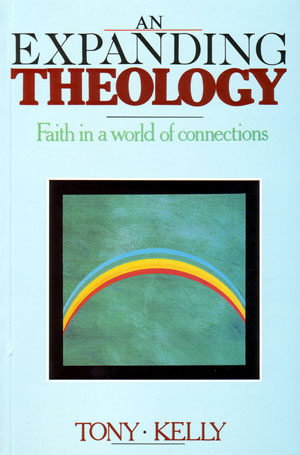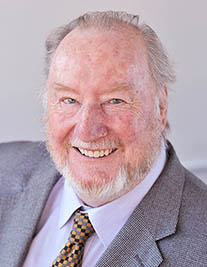CONTENTS
Section 1 - Implications: A First Circle of Connections
Section 2 - A Second Circle of Connections: Contexts
Section 3 - A Third Circle of Connections: The Logos in the Cosmos
Section 4 - A Fourth Circle of Connections: From Within Creation
Section 5 - A Fifth Circle of Connections: Human Being
Section 6 - A Sixth Circle of Connections: The Trinity
Section 7 - A Seventh Circle of Connections: The Eucharistic Universe
Section 8 - Dimensions: Death
Section 9 - Dimensions: Love and Sex
Section 10 - Conclusion

PREFACE To the REVISED EDITION
Certainly, many Christians have an increasing familiarity with the brilliance of the scientific explorations that are taking place, all the way from quarks to quasars. This new sense of the mystery of the cosmos is often accompanied by a stirring of ecological conscience as we wonder at the universe has brought forth life in all its precious variety. With such an expansion of consciousness in science and moral concern, faith is temporarily tongue-tied. How can our Christian vision encompass the wonder and responsibility that a new sense of reality inspires? How can faith make, and live, these new connections?
Such are the questions I try to address. Of course, I can do that only from a limited point of view. In fact, there is no universal standpoint outside the whole process: you can only enter the conversation with what you are, and where you come from. Essential aspects of what I come from are, first of all, Christian faith, the Catholic tradition, and the discipline of theological exploration. More immediately, my viewpoint is affected by the degree to which I have let that faith, that tradition and that discipline be sparked into a new intensity of exploration by new holistic and cosmic perceptions of reality. Unless you are to be progressively schizophrenic, you have to try to make sense of it all, somehow. And that is where we touch the problem.
It requires no special modesty to admit that we do not know everything about everything. Neither, do I think it is an excess of humility to disclaim knowing even something about everything. Still, I found myself, in the course of writing, often returning to one of the most enduring philosophical insights, from before Aristotle to after Teilhard, namely that each of us is something about everything, or at least, somebody in the everything, or even everything in the somebody we each are: the microcosm within the macrocosm, the image of God within the universe of God's creation. To bring that to consciousness, to cultivate this englobing sense of sense of belonging to the whole, to throw light on our existence as an overture and co-existence within the all, to intimate the horizon in which we can understand our participation in the emergence of the universe – that strikes me as a worthwhile goal.
Yet there is a risk in attempting such a thing. You have to work in terms of intimation and evocation. It is like suggesting a feel for creation as poem before you read it as a work of prose. Such efforts to specialists sound irritatingly vague. General statements are as often as not the resort of very limited competence in dealing with so many areas. On the other hand, in this remarkable age of specialisation, we are not used to thinking in the largest possible terms.
Still, I am disposed to defend an amateur status in this new age of connections. To suggest that we are all amateurs when it comes to ‘getting it all together' implies no arrogant judgment on the expertise and intelligence, be it in science, theology or philosophy, that have been exploring different dimensions of these cosmic and global matters. The universe as it emerges into our present apprehensions does not encourage professionals and specialists. In some ways, it favours the amateur. And this in two senses of the word: first, in that we are all beginners in the presence of the overwhelming complexity of things. Though some might have a remarkable competence in one or other or even several of the relevant disciplines, there is simply no room for the cosmic know-all. Challenged to a universal vision, none of us can be so full of ourselves as to render further discussion useless. Things are too big for that; and, on the shadow side, too far gone, if we dare face either the ecological destruction that has occurred in the world, or the distress occurring in the inner ecology of our various cultures.
But there is a second sense of amateur, an older and more tender one. In its Latin roots, it means quite simply, ‘lover', one who does things for the joy of cherishing something deemed to be of essential value. This is a meaning I especially treasure in the present context. I think it captures a sense of not waiting for the grand solution, but of starting from where we are and making the best of it, by throwing our best selves into the whole business. If you left love or art or communication to the professionals, we would hardly begin to live.
I
think, too, that in the deep reaches of faith, there is a special value in maintaining an amateur status. There are no professionals in the sight of God; we are saved neither by the knowledge or the good works of someone else. For we enter into the Kingdom as amateurs, as lovers, as children and eternal beginners. This is especially the case, perhaps, when it comes to making new connections with the wonder of life and the universe itself.
My hope is that future refinements of vision, intelligence and skill will find the right words and come up with the right methods; but such an achievements would fall flat if there is no tide of love, no world of living connections, on which to ride. To that degree, a newly connected world has to be one of fresh democracy. In it everyone can vote with the authority of a particular love born of a special experience, however inexpressible, of universal connections.
Whilst the various subjects listed in the Table of Contents are predictable enough, I am writing with the purpose of sparking further conversation. I would like to think that I am presenting the matters discussed within an ecology of meaning, with the accent on connections, implications and analogical linking – a particular version of that ‘framework of collaborative creativity' commended by Bernard Lonergan Method In Theology. However, ‘framework' is perhaps too much a metaphor of stability, given the more spiralling pattern of connections I have attempted to make.
The book has a beginning and an end; but at any number of places within it, the reader might find a point of entry. The procedure I have adopted permits that, if only for the reason that I often puzzled over the best sequence myself. After all, one can drop in and out of a conversation: neither here, nor in most domains of life and growth, does linear logic claim a very tight rule.
I begin with two rather large ‘circles of connections': the first, Implications, introduces the expanding scope of faith-seeking-connections, while the second, Contexts, concentrates on particular elements within that scope. Then follows other arcs of reflection. These are more thematically focused in Christian considerations: Christ, Creation, Anthropology, Trinity and Eucharist.
It might be surprising to find that the book ends with two ‘dimensions' of universal experience: death and sexual love. I wasn't quite sure where to treat such matters – but one seldom is. All I know is that any seriously playful effort to make universal connections can hardly leave them out, even though I have found, to my surprise, that a good number of those who write on our new ecological or cosmic connections, make no mention of such inescapable dimensions of life and love.
So, a spiral of meanings: whether this will appear as a harmless stylistic conceit on my part, or more seriously, a subterfuge to cloud the issue – perhaps to conceal my ignorance of hundreds of technical issues – or something more helpful, will appear in due course. There is that risk I mentioned above, in trying to bring it all together in some way: you leave so much out; you merely touch on so much else; you make summary reference to what is already well done; and you keep making the almost daily discovery of further key sources.
And you keep wondering who is likely to read this kind of thing. I suppose all writers have ‘a general reader' in mind, usually a composite of the author's nightmarish fantasies: a team of experts poring over one's words with the diligence of scholars examining the Dead Sea Scrolls; or the ‘simple faithful' aghast and dismayed; or ‘lost souls', finding, it might be, only further reason confusion and doubt.
But a sense of reality returns. When I remind myself of the conversations from which this book emerged, and those to which I hope it may lead, I usually find that experts are usually interested in a new angle, that the ‘simple faithful' have a powerful good sense, and that ‘lost souls' are the great searchers. Perhaps there is something of all three in each of us these days.
You will notice, too, that I make some effort to blend new things and old. Though our sense of time, and of reality generally, is vastly different from that of the medievals, I am convinced that there is a great deal to be retrieved in the vision of Aquinas and his contemporaries. Part of the thinness of the modern theologies of ecology and creation results from trying to invent the world from scratch – a theological re-invention of the wheel, you might say – without taking account of past achievements. Of course, I am indebted to many other theological influences, as the references will show. Pierre Teilhard de Chardin, Bernard Lonergan, Karl Rahner, Hans Urs von Balthasar, along with their various astute commentators and continuators, are always at my elbow.
How I have succeeded, what this book adds to the literature in this area, readers will judge for themselves without any assistance from the author. I have carefully revised the text of the previous edition – in the hope of clarifying some rather obscure passages, and of making the whole thing more accessible in style. In general I have not updated all the scientific references, since that would be an immense and necessary labour beyond my present capacities. I do add, however, some recent significant works in the select bibliography at the end. Still, I think the book will provide a general framework into which new scientific perspectives can be integrated. All I can do is once more to express the hope that any given conversation dealing with this universe of connections might be reminded of aspects that tend to be forgotten, and be inspired to a fresh exploration of what ‘catholic' (kat' holou, ‘in accord with the whole') might mean today.
Every book is the outcome of a whole ecology of shared resources, care and conversation. I cannot begin to name all the good influences that have supported and challenged me in my writing in this instance, and encouraged me to make it further available in this way. Anyone named would stand for a multitude. But I do mention a dear colleague, Yuri Koszarycz, who laboured mightily to make An Expanding Theology available in this new and revised form. He, and so many like him, bring home to me the reality of what I am here exploring, that world of gracious connections in which we live.
Tony Kelly, CSsR.
Australian Catholic University
November 2003.
